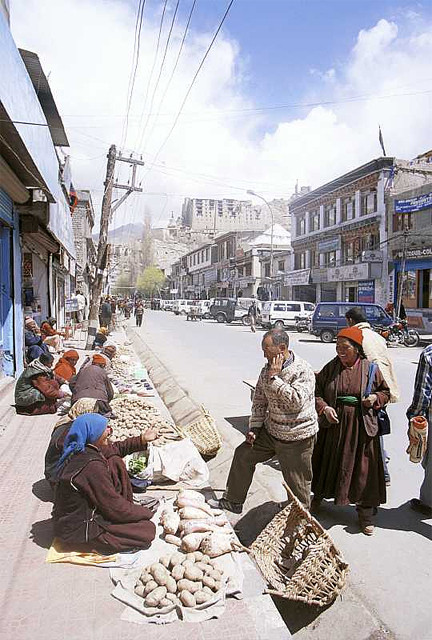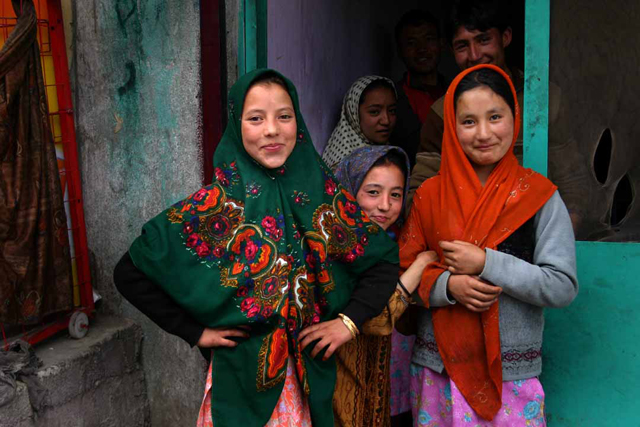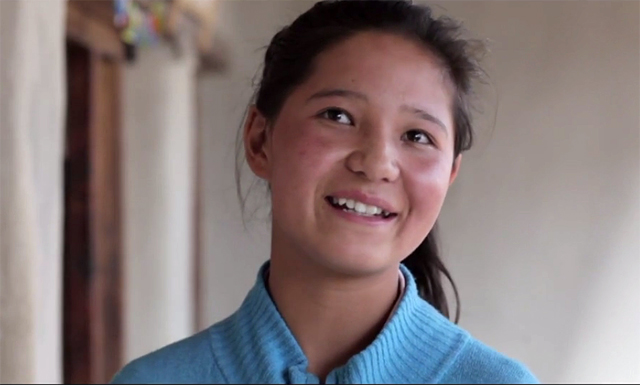Leh, the town that serves as capital of Ladakh, was in an uproar last week because some policemen sexually harassed a couple female students. The heavy-handed response by police officials attempting to cover up the crime and their repressive approach to the complainers prompted outrage among many Ladakhi women.

The incident was described in the Indian media as “eve teasing,” a catchall term for any unwanted sexual harassment or abuse. This particular outrage occurred around 5:45 in the afternoon on September 30 right in the Leh Market near the State Bank of India. The news reports said a couple female students (some of the news stories reported only one woman was involved) were walking home when two men harassed and insulted them, making obscene comments in the process. Nearby bystanders got involved in defending the assaulted women and a scuffle ensued.
But the story gets worse. When the young women went to the Leh police station with their protectors to lodge a complaint, called an FIR or First Information Report about the incident, the police turned on the complainers. They not only refused to file the FIR, they beat up the male students who had tried to protect the women. The police then booked the would-be protectors in jail without allowing any bail for them. It turned out that the culprits of the eve teasing were off-duty, non-Ladakhi police dressed in civilian clothing.
The various women’s organizations banded together to call a press conference for Wednesday October 3. A local women’s leader, the Nominated Councilor of the PDP Rinchen Lhamo, spoke to the gathering, presenting a letter that the women had prepared to send to Satya Pal Malik, the Governor of the state of Jammu and Kashmir, of which Ladakh is a part. The letter described exactly what had happened and requested the governor to launch an impartial inquiry.

The Buddhist, Muslim, and Christian organizations that united to draft and sign the letter included women leaders from the Ladakh Buddhist Association (LBA), Women’s Wing, Anjuman Moin-Ul-Islam, Women’s Wing, Ajuman Immmia Leh, Women’s Wing, Christian Association’s, Women’s Wing, Ladakh Women’s Alliance, Leh , Mahela Mandel Leh, Ladakh Women’s Welfare Network, BJP Leh Women’s Wing, Congress Party Leh Women’s Wing, PDP Leh Women’s Wing, and NC Leh Women’s Wing.
Out of the numerous news reports on the incident, one quoted an interesting paragraph from the letter: “With a deep sense of anguish, we, the undersigned representatives from different religious and political organisations of Leh, seek liberty to invite your kind intervention to an eve-teasing case wherein police, under the direction of [police] Headquarters Leh, has involved in shielding the culprits by further victimising the victims. Instead of maintaining law and order in this peace loving border region, police [are] resorting to misuse [of] authority which could potentially lead to [destabilizing] the harmony in the region.”
The women announced at the press conference that they were going to shut down Leh completely the next day, October 4. On Thursday, almost the entire town closed down. One news story reported that a majority of shopkeepers were closed for the day; another included a photo showing the shopping square with only a few people out and about.

This most recent development relating to the treatment of Ladakhi women is another demonstration of the analysis presented less than a year ago by a different news story, which indicated that some Ladakhi women are treated very poorly by Ladakhi men. The prominent Ladakhi woman trekking guide Thinlas Chorol made it very clear last year she dismissed the notion that women had a place of equality in Ladakhi society.
“Is it justified to say that women in Ladakh are enjoying liberty and equality only because we are not burnt for dowry or killed in the [womb],” she complained. Articles about Kung Fu self-defense training for Ladakhi girls and young women in 2017 and 2018 added to the strong impression that females in Ladakh need to be very careful, especially in urban settings such as Leh. It is encouraging that the women from many different religious traditions are uniting to confront the discrimination they are encountering.